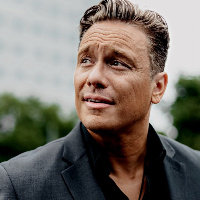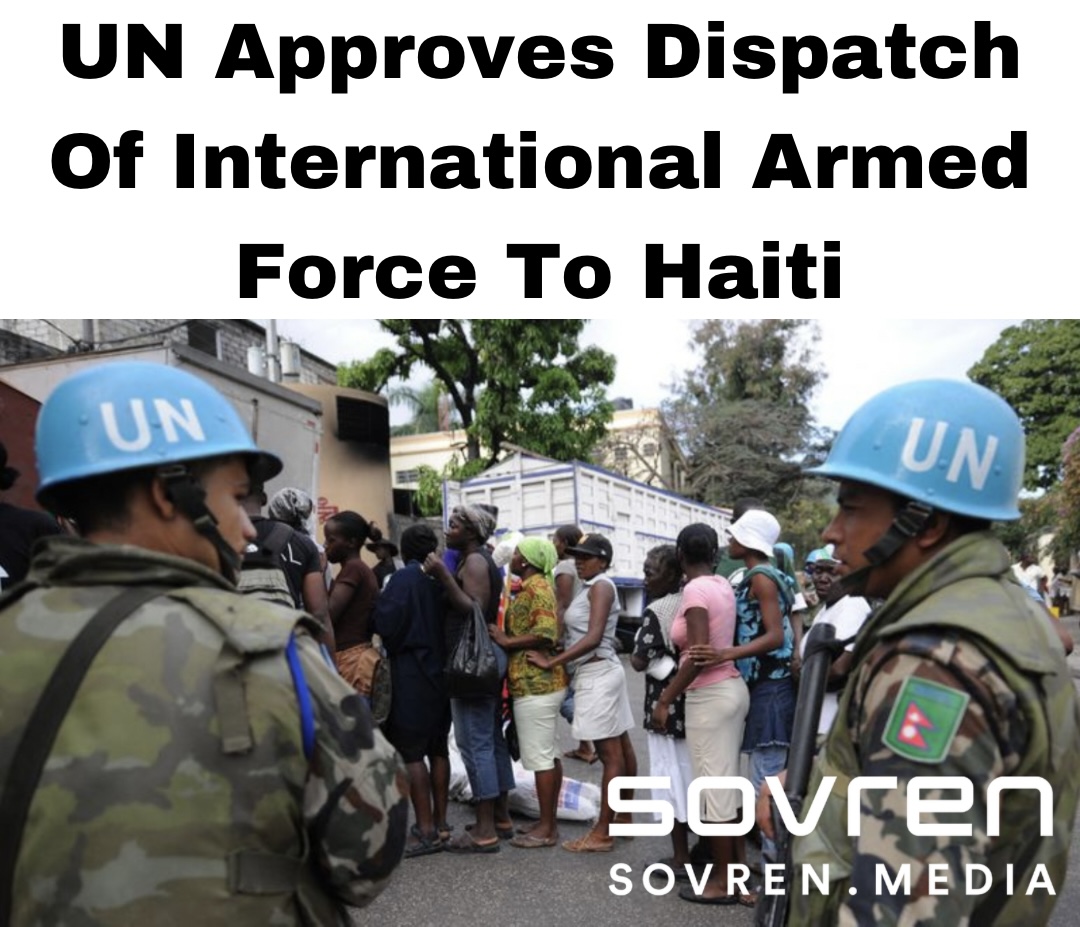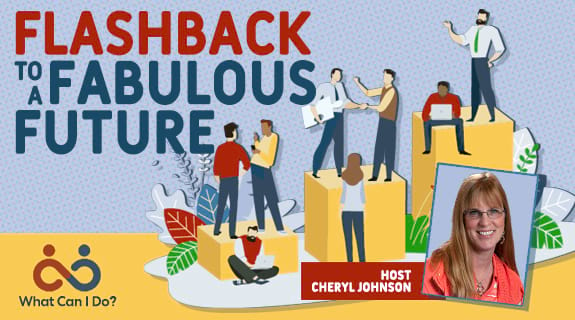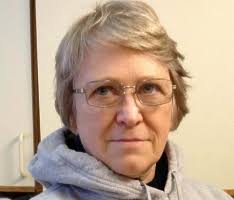N.C. REPUBLICANS OVERRIDE GOVERNOR’S VOTING LAWS VETO
Follow America's fastest-growing news aggregator, Spreely News, and stay informed. You can find all of our articles plus information from your favorite Conservative voices.
The Republican-led legislature in North Carolina has defied Democratic Gov. Roy Cooper’s veto of an election law he deemed a “threat to democracy” and successfully passed the law, asserting election integrity.
The bill, SB 749, made material changes to the state’s election law by establishing bipartisan election boards, according to The Hill.
Cooper claims that the bill, which would take election boards away from the governor’s party and put them under the control of a group split equally between Democrats and Republicans, will result in gridlock when deciding early-voting locations and certifying results.
People
Circles
Posts
The debate on stabilizing a failing state and restoring democracy predominantly lies in security, or development. The United Nations Security Council has landed on the former and approved the dispatch of an international armed force to Haiti, as the Caribbean country grapples with widespread gang violence and political gridlock. The Caribbean nation has been without an elected government since the assassination of its Prime Minister more than two years ago.
The mission was requested due to months of turmoil and deteriorating conditions impacting the civilian population. This year alone has witnessed over 3,000 reported homicides and more than 1,500 cases of kidnapping for ransom.
Approximately 200,000 individuals have been displaced from their homes, while incidents of sexual violence and abuse against women and girls by armed gangs continue to rise. Tens of thousands of children are unable to attend school.
With a recorded vote of 13 in favor and 2 abstentions (Russia and China), ambassadors in New York endorsed the Multinational Security Support (MSS) mission to safeguard critical infrastructure and key transit points such as airports, ports, schools, hospitals, and major intersections.
However, the UN itself will neither be leading or organizing the intervention and some are questioning whether this intervention is in Haiti's best interest, or solely serves the interest of international powers.
Haiti is among the thirteen independent nations that officially acknowledge Taiwan as the legitimate government of China, a stance it has maintained since 1956. While Haiti maintains official diplomatic relations with Taiwan, it does not have such relations with China.
Do We Have Unequal Branches of Government?
The division of power within a democratic government is essential for maintaining a system of checks and balances. It ensures that no single branch becomes too powerful, preventing the concentration of authority and safeguarding the rights and liberties of the citizens. However, an ongoing debate persists regarding the distribution of power among the branches of government. Some argue that certain branches possess more influence and control, leading to an unequal distribution of power. In this article, we will explore this perspective and examine whether we truly have unequal branches of government.
The Separation of Powers:
The concept of the separation of powers lies at the heart of democratic governance. In most democratic systems, power is divided among three branches: the legislative, executive, and judicial. The legislative branch, typically composed of elected representatives, creates laws; the executive branch, led by the head of state or government, implements and enforces laws; and the judicial branch, consisting of independent courts, interprets and applies laws.
Critics argue that the branches of government are not equally empowered, resulting in an imbalance that can undermine the effectiveness of checks and balances.
The Legislative Branch:
The legislative branch, often seen as the most representative and democratic branch, is responsible for making laws. It is composed of elected officials who represent the interests of the citizens. However, some argue that the legislative branch has become increasingly polarized and subject to party politics. This can result in gridlock, with the inability to pass essential legislation due to ideological differences or partisan interests. Moreover, the influence of money in politics can undermine the fairness and equality of representation, further exacerbating concerns about the unequal distribution of power.
The Executive Branch:
The executive branch, headed by the president or prime minister, holds significant power and authority. It is responsible for implementing and enforcing laws, managing foreign affairs, and overseeing the day-to-day operations of the government. Critics contend that the executive branch has expanded its powers beyond the intended scope, particularly in times of crisis or through the use of executive orders. This concentration of power can lead to concerns about potential abuses or a lack of accountability.
The Judicial Branch:
The judicial branch plays a vital role in interpreting laws and ensuring their constitutionality. It acts as a check on the other branches by providing an independent and impartial assessment of legislation and executive actions. However, the appointment of judges and their potential biases have raised questions about the impartiality and neutrality of the judiciary. Critics argue that certain judicial appointments may prioritize political ideologies over legal expertise, leading to decisions that favor one political agenda or interest group over another.
Addressing the Imbalance:
Recognizing and addressing any perceived imbalance among the branches of government is crucial to maintaining a healthy democratic system. Reforms and safeguards can be implemented to promote greater equality and fairness.
1. Strengthening the legislative branch: Enhancing transparency, campaign finance reform, and promoting bipartisan cooperation can reduce the influence of special interests and foster a more representative legislative body.
2. Ensuring executive accountability: Implementing stricter oversight measures, reinforcing the role of Congress in decision-making, and encouraging a culture of transparency and ethics within the executive branch can mitigate concerns about the concentration of power.
3. Protecting judicial independence: Upholding rigorous standards for judicial appointments based on merit and legal expertise, as well as enhancing diversity within the judiciary, can help safeguard the impartiality and fairness of the judicial branch.
While concerns about an unequal distribution of power among the branches of government are valid, it is essential to recognize that democratic systems are not static. They can evolve and adapt to address imbalances and ensure the continued protection of citizens' rights and liberties. By acknowledging the concerns and actively engaging in discussions and reforms, we can work towards a more equitable and balanced system of governance that upholds the principles of democracy
Do you want to learn more about what you can do to act NOW! and save our Constitution?
https://www.thefifthprinciple.coop/wcid.html
Take your learning to the next level:
✍️ Join our course on faith here.
https://www.thefifthprinciple.coop/faith.html
✍️Learn about historical events that shape our future. Flashback to a Fabulous Future.
https://www.voiceamerica.com/show/4117/flashback-to-a-fabulous-future
✍️ Join us on our learning Journey to Plymouth, MA, on August 30, 2023 – September 4, 2023. Learn more here.
https://keap.page/ysn122/monument-to-our-fathers-tour.html
✍️ Join our Constitution Alive! course beginning on March 13, 2023 at 7 p.m. Eastern for 10 weeks. There is no charge for this course.
https://www.patriotacademy.com/coach/register/5180
✍️ Join our Bible Study Group. Study the Bible through the lens of our Founding Fathers. We use David Barton’s Founder’s Bible when we meet once a week on Sundays at 6:00 p.m. Eastern. There is no charge for this class.
https://thefoundersbible.com/
✍️ To join our waiting list, sign up thru the following links:
For our Biblical Citizenship, and the American Campfire Revival courses. There is no charge for these courses.
https://www.thefifthprinciple.coop/membership.html
#homeschool, #history, #unitedstates, #consitution, #foundingfathers, #travel, #tour, #historical, #family, #bible, #biblical, #faith
Videos
People
Circles
Videos
Posts
N.C. REPUBLICANS OVERRIDE GOVERNOR’S VOTING LAWS VETO
Follow America's fastest-growing news aggregator, Spreely News, and stay informed. You can find all of our articles plus information from your favorite Conservative voices.
The Republican-led legislature in North Carolina has defied Democratic Gov. Roy Cooper’s veto of an election law he deemed a “threat to democracy” and successfully passed the law, asserting election integrity.
The bill, SB 749, made material changes to the state’s election law by establishing bipartisan election boards, according to The Hill.
Cooper claims that the bill, which would take election boards away from the governor’s party and put them under the control of a group split equally between Democrats and Republicans, will result in gridlock when deciding early-voting locations and certifying results.
The debate on stabilizing a failing state and restoring democracy predominantly lies in security, or development. The United Nations Security Council has landed on the former and approved the dispatch of an international armed force to Haiti, as the Caribbean country grapples with widespread gang violence and political gridlock. The Caribbean nation has been without an elected government since the assassination of its Prime Minister more than two years ago.
The mission was requested due to months of turmoil and deteriorating conditions impacting the civilian population. This year alone has witnessed over 3,000 reported homicides and more than 1,500 cases of kidnapping for ransom.
Approximately 200,000 individuals have been displaced from their homes, while incidents of sexual violence and abuse against women and girls by armed gangs continue to rise. Tens of thousands of children are unable to attend school.
With a recorded vote of 13 in favor and 2 abstentions (Russia and China), ambassadors in New York endorsed the Multinational Security Support (MSS) mission to safeguard critical infrastructure and key transit points such as airports, ports, schools, hospitals, and major intersections.
However, the UN itself will neither be leading or organizing the intervention and some are questioning whether this intervention is in Haiti's best interest, or solely serves the interest of international powers.
Haiti is among the thirteen independent nations that officially acknowledge Taiwan as the legitimate government of China, a stance it has maintained since 1956. While Haiti maintains official diplomatic relations with Taiwan, it does not have such relations with China.
Do We Have Unequal Branches of Government?
The division of power within a democratic government is essential for maintaining a system of checks and balances. It ensures that no single branch becomes too powerful, preventing the concentration of authority and safeguarding the rights and liberties of the citizens. However, an ongoing debate persists regarding the distribution of power among the branches of government. Some argue that certain branches possess more influence and control, leading to an unequal distribution of power. In this article, we will explore this perspective and examine whether we truly have unequal branches of government.
The Separation of Powers:
The concept of the separation of powers lies at the heart of democratic governance. In most democratic systems, power is divided among three branches: the legislative, executive, and judicial. The legislative branch, typically composed of elected representatives, creates laws; the executive branch, led by the head of state or government, implements and enforces laws; and the judicial branch, consisting of independent courts, interprets and applies laws.
Critics argue that the branches of government are not equally empowered, resulting in an imbalance that can undermine the effectiveness of checks and balances.
The Legislative Branch:
The legislative branch, often seen as the most representative and democratic branch, is responsible for making laws. It is composed of elected officials who represent the interests of the citizens. However, some argue that the legislative branch has become increasingly polarized and subject to party politics. This can result in gridlock, with the inability to pass essential legislation due to ideological differences or partisan interests. Moreover, the influence of money in politics can undermine the fairness and equality of representation, further exacerbating concerns about the unequal distribution of power.
The Executive Branch:
The executive branch, headed by the president or prime minister, holds significant power and authority. It is responsible for implementing and enforcing laws, managing foreign affairs, and overseeing the day-to-day operations of the government. Critics contend that the executive branch has expanded its powers beyond the intended scope, particularly in times of crisis or through the use of executive orders. This concentration of power can lead to concerns about potential abuses or a lack of accountability.
The Judicial Branch:
The judicial branch plays a vital role in interpreting laws and ensuring their constitutionality. It acts as a check on the other branches by providing an independent and impartial assessment of legislation and executive actions. However, the appointment of judges and their potential biases have raised questions about the impartiality and neutrality of the judiciary. Critics argue that certain judicial appointments may prioritize political ideologies over legal expertise, leading to decisions that favor one political agenda or interest group over another.
Addressing the Imbalance:
Recognizing and addressing any perceived imbalance among the branches of government is crucial to maintaining a healthy democratic system. Reforms and safeguards can be implemented to promote greater equality and fairness.
1. Strengthening the legislative branch: Enhancing transparency, campaign finance reform, and promoting bipartisan cooperation can reduce the influence of special interests and foster a more representative legislative body.
2. Ensuring executive accountability: Implementing stricter oversight measures, reinforcing the role of Congress in decision-making, and encouraging a culture of transparency and ethics within the executive branch can mitigate concerns about the concentration of power.
3. Protecting judicial independence: Upholding rigorous standards for judicial appointments based on merit and legal expertise, as well as enhancing diversity within the judiciary, can help safeguard the impartiality and fairness of the judicial branch.
While concerns about an unequal distribution of power among the branches of government are valid, it is essential to recognize that democratic systems are not static. They can evolve and adapt to address imbalances and ensure the continued protection of citizens' rights and liberties. By acknowledging the concerns and actively engaging in discussions and reforms, we can work towards a more equitable and balanced system of governance that upholds the principles of democracy
Do you want to learn more about what you can do to act NOW! and save our Constitution?
https://www.thefifthprinciple.coop/wcid.html
Take your learning to the next level:
✍️ Join our course on faith here.
https://www.thefifthprinciple.coop/faith.html
✍️Learn about historical events that shape our future. Flashback to a Fabulous Future.
https://www.voiceamerica.com/show/4117/flashback-to-a-fabulous-future
✍️ Join us on our learning Journey to Plymouth, MA, on August 30, 2023 – September 4, 2023. Learn more here.
https://keap.page/ysn122/monument-to-our-fathers-tour.html
✍️ Join our Constitution Alive! course beginning on March 13, 2023 at 7 p.m. Eastern for 10 weeks. There is no charge for this course.
https://www.patriotacademy.com/coach/register/5180
✍️ Join our Bible Study Group. Study the Bible through the lens of our Founding Fathers. We use David Barton’s Founder’s Bible when we meet once a week on Sundays at 6:00 p.m. Eastern. There is no charge for this class.
https://thefoundersbible.com/
✍️ To join our waiting list, sign up thru the following links:
For our Biblical Citizenship, and the American Campfire Revival courses. There is no charge for these courses.
https://www.thefifthprinciple.coop/membership.html
#homeschool, #history, #unitedstates, #consitution, #foundingfathers, #travel, #tour, #historical, #family, #bible, #biblical, #faith
A Bank Update
By Anna Von Reitz
Good morning to all!
TACT is a consultative group and if it is going to consult on issues related to banking and policy for the States, it needs to have actual international bankers involved and it needs to be acting hand-in-hand with the Federation of States, so that one hand knows what the other is doing.
The appropriate role for TACT, when it has the resources, is to help the States set up their own banks; however, because what we are doing has never been done before, it isn't likely that bankers coming in out of the old de facto system will be able to help. Like trying to retrain Bar Attorneys, they have related skills, but they are so inured to doing things in one jurisdiction and according to one system, that they can initially cause more problems than a new recruit with no experience at all.
Our plan is to provide an overall plan and trained personnel who are familiar with the Blue Dot System available in each State, and then as the State Banks come online, "migrate" all the accounts belonging to people and businesses in that State to the State Banks.
We are using Global as a bank incubator for this purpose, so that people aren't stuck waiting for relief for another ten years while all the States to get themselves and their State Banks organized.
This kind of coordination is necessary to: (1) ensure safety and integrity of accounts and accounting systems that have to interact with each other; (2) have competent asset managers and committees established in each State; (3) thoroughly familiarize all bank personnel and state leaders and account holders with this new way of doing things.
Any time you do anything new in an effort to improve or change something that is obviously bad (like the current banking system), people react in fear. It may be bad, but it's familiar. And then, we get instigators who have vested interests in the old system deliberately trying to use that fear to wreck our new system even as it is being born.
And we get other instigators who want to use this fear to excuse their own need to control everything. They may not have any particular malice toward the new system, but they want to control that new system.
In my experience, those who want to control come in two flavors--- bad men who want to control for bad uses and reasons, and good men who want to control because they are afraid that if they don't personally control everything, bad men will get into power and rule over them. It really doesn't matter in the end, because this whole mindset whether it comes from a "good" man or a "bad" man, ends in the same result: despotism, fear, gridlock, and "politicking".
That is precisely what happened with the LRO/LRS "debate" and the same people responsible for that unnecessary and destructive controversy are trying to get it rolling again. The rest of us have to put our feet down and not let their personal need to control everything impede our progress.
As a result of not understanding international affairs and international banking, various misconceptions have been spread far and wide, among them the idea that the Confederation of States of States has to be controlling banking functions. If that were true, we'd all be in a world of hurt right now, because there would be no competent organization in place to make the claims and do the work to: (1) protect and recoup assets belonging to this country and its people, and (2) organize the means to get the recouped asset records, credit, and funding back to the States and people.
All the "powers" that we think of as being delegated powers are delegated to the Federation first, and the Federation exercised all those powers from 1776 to 1781, when the Confederation was formed and began taking on some of the commercial functions. Then, beginning in 1787 the delegated powers were distributed under the Federal Constitutions to three Subcontractors, each with their own contract (constitution) and their own specialties. The American Subcontractor operating as the States of America, was known as The Federal Republic, and it was overseen by the Confederation of States, and it was heavily involved in international commerce, the then-up-and-coming venue to conduct international business.
When the Confederation folded in 1861, so did the Federal Republic. Most of you reading this are well aware of these facts and we won't belabor them. The loss of both these functional parts of our government, however, did not leave us without the ability to exercise the delegated powers.
By Operation of Law, all the delegated powers returned to the Federation, and it is this fact which allows us to make the claims and recoup the assets and do all else that we need to do today --- not five years from now when the Assemblies have their State of State organizations fully set up and have reworked The Articles of Confederation, etc., etc., etc.,
If the Federation were not standing in the gap right now, with the proper provenance and standing, we would not be able to claim our assets and credit as a nation.
The rest of the world isn't standing by and waiting for five years or however long it takes for the States to get the restoration done, so it should be a moment to pause and duly appreciate the Separation of Powers and the intricately crafted structure of government that our Forefathers bequeated to us. There isn't another country on this planet that could go through what we've gone through and still be standing.
So thank God for the Federation that has stood the test and called all your States to Assemble and guided this whole process forward. Thank God that the Federation is the foundational structure in international matters and not the destroyed Confederation. Thank God that the Federation did all the functions of all the Federal Subcontractors for a period of nearly five years, and proved that not only can the Federation do this, the Federation has done all this work in the past.
Another misconception is that The Global Family International Trade Bank and The Global Family Commercial Bank are "vendors" of banking services that the Federation hired. We chartered both those banks, which is a different relationship entirely. They are not acting as private vendors. They are acting as Public Vendors.
This is transparent and because our goals and agreements are published as the Bank Charter along with the Bank Treaties for all the world to see, there is absolutely no excuse for any idea that the Global Family Group is acting in any undisclosed capacity. The agreements are stipulated and published and open to public view.
This is only one of the "first ever in the history of banking" things we have done. No other country publishes their bank charters and treaties. They use these documents to get special undisclosed "deals" for themselves and they guard these things like state secrets from the people they are supposed to serve. We said no to that whole paradigm. We published. Now its up to the rest of you to read and understand what you've read.
After everything else you have learned this should not be SO hard to grasp.
You all now know that the land and soil jurisdiction is different from the air (Municipal) and sea (Territorial) jurisdictions. The land and soil jurisdictions function under different law, and our people and Lawful Persons have a different political status. We have different courts, different forms, different names for things, different rights, different forms of money—it should be a complete no-brainer for you to figure out that we also have different banks.
So why is it that I continue to wrestle with all these completely irrational assumptions that equate our banks with THEIR banks?
Our banks are just as different as our courts.
Hello?
There are only a few international bankers who deal with actual physical assets and they are the only ones who remember and know the law for land and soil jurisdiction banks.
Throw everything you think you know about banking out the window, especially when it comes to doing what we are doing now- which is not only a different kind of banking, but what might be termed “reverse banking”.
Instead of you giving away your assets and credit to the banks, our banks are designed to return your purloined assets and credit back to you. It’s an entirely different concept. That’s why we call it a “Prosperity System” even though it functions like a bank.
And though it is completely lawful to do this, it has never been done before in the history of the world. Their banking system is used to enslave you. Ours is to set you free in all respects.
Ask yourself—- can you be “free” if you are financially enslaved?
Of course not.
So how can anyone be free who is nailed down to a job they hate or a job that doesn’t provide any security or a job that doesn’t pay a living wage or a job that requires both parents to work all the time so that you get a whole seven minutes a day to interact with your pets and your kids —- and that is if CPS or some other Goon Squad doesn’t take them away from you?
What kind of life have we been living? You call this “freedom”?
No, to be free and secure and happy you have to have financial freedom and you have earned it and your parents and grandparents and sons and daughters have all earned it and never been paid.
That’s a big problem folks—- one that only our banks and our courts can address. So stand back and check everything you assume you know about banking, freedom, or prosperity at the door.
Today I saw references in discussion groups inferring that our banking program was “off track” and calling for help from the Assemblies.
I even saw people fussing about us meeting the foreigner’s State of State and local banking regulations.
We aren’t under their regulations. They are under our Law. It’s completely opposite.
What Daria, Anita, Yvonne, Xavier and Eddie did had nothing whatsoever to do with our bank. It concerned a State of California PMA Credit Union no different than any other State of California Credit Union.
It did not, does not, and could not “be” our bank or part of our banking system. Literally.
Knowing that our banks are in a different jurisdiction, functioning under different law, and serving a different populace, how could anyone think that a State of California Credit Union has anything to do with our banks?
If it was misrepresented as being our bank the people who did the misrepresenting are the ones to be blamed— either for their ignorance or their guile.
And that SHOULD be the end of any honest confusion. It really, truly, should. If it’s not I will doubt the motives of anyone who continues to bring this up and tries to use it as a mark against our banks.
I saw people making comments to the effect that our banking effort was “off track” and that “we” — meaning State Assemblies had to step in and straighten things out.
First, it’s not the jurisdiction of the State Assemblies.
Second, our banks are not off track —they are right on track. And on time, too.
Third, you couldn’t help build our banks. There are very few international bankers left who understand how land jurisdiction banks work and I can guarantee you that I haven’t found any of them in the ranks of the State Assemblies.
So. Unless you happen to be an international banker with a rare education, please sit down and shut up?
Thank you, very much. My additional comments regarding TACT etc. will be attached to a copy of this article.
https://annavonreitz.com/replytotactproposal.pdf
----------------------------
See this article and over 4200 others on Anna's website here: www.annavonreitz.com
GUESS THEY DONT WANT TO BE PART OF TREASON, TRAITORS JOES LOONEY LEFT PARTY, WITH NANCI, OBARRY, ODULLRY, OBERNIE, OMAXI,,OSHIFTY,,OSMOOCKIE,,,TO CONSPIRACY, COUP, TO OVER THROW AMERICA,,
ALLAMERICANPRESS.COM
Bad Signs for Dems as House Exits Hit a 30-Year High - All American Press
The number of House Democrats who are not running for reelection this year has reached a 30-year high, reflecting dissatisfaction with the gridlock on Capitol Hill, the toxicity of partisan relations, and the challenges facing Democrats as they fight to maintain their slim majority in the lower cham...








